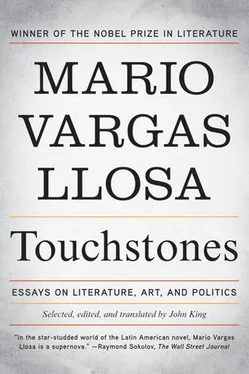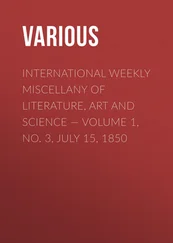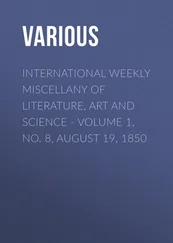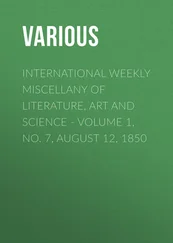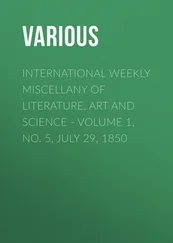Like the Duke and Duchess, another powerful figure in the novel, Don Antonio Moreno, who offers Don Quixote lodging in Barcelona and entertains him, also puts on shows that make reality unreal. For example, he has in his house an enchanted bronze head that replies to questions, since it knows people’s pasts and their futures. The narrator explains that this is an ‘artifice’ because the so-called fortune teller is a hollow machine with enough room inside to fit a student, who answers the questions. Is this not living a fiction, turning life into a theatrical performance, just as Don Quixote does, although here done with malice, and not with his naïveté?
During his stay in Barcelona, when his host Don Antonio Moreno is taking Don Quixote around the city (with his name in large letters on a sign stuck to his back), a Castilian comes up to the Ingenious Hidalgo and says: ‘You’re a madman…but you have the ability to turn everyone who has anything to do with you mad and stupid just like you’ (II, 62). 14Don Quixote’s madness — his hunger for unreality — is contagious, and he has given those around him his appetite for fiction.
This explains the blossoming tales, the dense thicket of stories and novels that comprise Don Quixote de La Mancha . It is not just the evasive Cide Hamete Benengeli, the other narrator of the novel, who boasts that he is the mere transcriber and translator of the novel (although he is also, in fact, the editor, and takes notes and offers commentary), who reveals this passion for the fantasy life of literature, incorporating into the main story of Don Quixote and Sancho adventitious stories such as ‘The man who was recklessly curious’ and the tale of Cardenio and Dorotea. The characters also share this narrative propensity or vice which leads them, like the beautiful Morisca, or the Knight of the Green Coat, or Princess Micomicona, to tell true or invented stories, which create, through the course of the novel, a landscape of words and imagination that becomes superimposed over, and at time blots out completely, the other world, that natural landscape that seems so unreal, so bound up in commonplace forms and conventional rhetoric. Don Quixote de La Mancha is a novel about fiction in which the life of the imagination is everywhere, in the character’s actions, in the words they utter and in the very air that they breathe.
A Novel of Free Men
Just as it is a novel about fiction, so Don Quixote is a song of freedom. We should pause a minute to reflect on that very famous statement that Don Quixote makes to Sancho Panza: ‘Freedom, Sancho, is one of the most precious gifts bestowed by heaven on man; no treasures that the earth contains and the sea conceals can compare with it; for freedom, as for honour, men can and should risk their lives and, in contrast, captivity is the worst evil that can befall them’ (II, 58).
Behind this sentence, and the fictional character that utters it, we find the shadow of Miguel de Cervantes himself, who knew very well what he was talking about. The five years that he spent in captivity by the Moors in Algeria and the three times that he was imprisoned in Spain for debts and for being found guilty of discrepancies in tax accounts when he was a tax inspector in Andalucía for the Navy, must have intensified his desire for freedom and his horror at any restrictions on freedom. This background lends authenticity and power to Don Quixote’s statement and gives a particular libertarian bias to the story of the Ingenious Hidalgo.
What idea of freedom is this? The same idea that, from the eighteenth century, the so-called liberals would formulate in Europe: that freedom is the sovereignty of the individual to decide his or her life without pressure or conditions, in accordance solely with their intelligence and their wishes. That is what, several centuries later, Isaiah Berlin would term ‘negative freedom’, to be free from interference and coercion when thinking, expressing oneself and acting. What is at the heart of this idea of freedom is a profound mistrust of authority, of the excesses that power, all power, can perpetrate.
Let us not forget that Don Quixote delivers this passionate eulogy to freedom just as he has left the estate of the anonymous Duke and Duchess, where he has been regally treated by the exuberant lord of the castle, the very incarnation of power. But in the midst of all the flattery and attention that he received, the Ingenious Hidalgo felt that his freedom was imperceptibly being threatened and constrained: ‘I could not enjoy such luxuries [the gifts and attention lavished on him] with the same freedom as if they had been my own’ (II, 58). This declaration implies that the foundation of freedom is private property, and that true pleasure is only complete when the people experiencing the pleasure do not feel that they cannot take any initiative, that their freedom to think and act are being curtailed. Because, ‘the obligation to repay the benefits and favours received is a bond that prevents the spirit from campaigning freely. Happy is he to whom heaven has given a crust of bread and who is under no obligation to thank anyone for it except heaven itself.’ What could be clearer? Freedom is individual and requires a minimum level of prosperity to be real. Because people who are poor and depend on gifts or charity to survive, can never be totally free. It is true that there was a time long since past, as Don Quixote recalls to the terrified goatherds in his speech on the Golden Age (I, 11), in which virtue and goodness held sway in the world, and that in this age of paradise, before private property, ‘men living in such times did not know those words, “yours” and “mine”’, and ‘all things were held in common’. But then history changed, and ‘our detestable times’ arrived in which, for security and justice to prevail, ‘the order of knights errant was founded to defend maidens, protect widows and succour orphans and the needy’.
Don Quixote does not believe that justice, social order and progress emanate from authority, but rather that they are the work of individuals who, like his models, the knights errant, and he himself, shoulder the task of making the world they live in less unjust, freer and more prosperous. That is the knight errant: an individual who, dedicated to a life of generosity, heads out on the highways to seek redress for all the evils on the planet. Authority, when it appears, hinders rather than aids this task.
Where is the authority in the Spain that Don Quixote travels around on his three sallies? We have to step out of the novel to know that the King of Spain who is alluded to on several occasions is Philip III, because within the fiction, except for a very few, fleeting appearances, such as the appearance of the governor of Barcelona when Don Quixote visits that city, the authorities are conspicuous by their absence. And the institutions that embody authority, like the Holy Brotherhood, which enforces law in the countryside, and which is alluded to on Don Quixote’s and Sancho’s journeys, are mentioned as something distant, dark and threatening.
Don Quixote has not the slightest qualm in standing up to authority and defying the laws when they go against his own conception of justice and freedom. On his first sally he confronts a rich man, Juan Haldudo, from Quintanar, who is whipping one of his servants for losing some sheep, something that, in keeping with the barbarous customs of the time, he was quite entitled to do. But the man from La Mancha considers this entitlement intolerable and he rescues the boy, thus righting what he considers to be a wrong (although, as soon as he leaves, Juan Haldudo, despite his promises to the contrary, starts beating Andrés again, leaving him half dead) (I, 4). The novel is full of episodes like this, where his individualistic and freedom-based view of justice leads the bold hidalgo to defy the established powers, laws and customs in the name of what for him is a superior moral imperative.
Читать дальше
